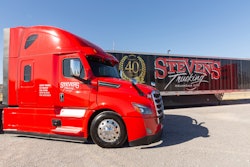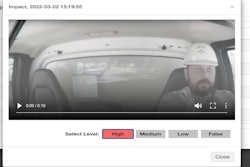Decision makers at fleets across the U.S. are tempering eagerness to adopt new technologies, according to a recent survey, but while their near-term readiness may have diminished due to the current business climate, adoption remains an eventuality.
A report from human behavior and analytics advisory firm Escalent shows that market readiness for adoption of technologies decreased from 2020 to 2021, but on a promising note, the 2021 index was above 2019.
According to Fleet Advisory Hub’s Fleet Technology Index, fleets are least eager to adopt artificial intelligence, battery electric vehicles and data analytics.
Escalent’s Fleet Advisory Hub, an insights tool designed to explore the needs, expectations and emotions of commercial vehicle and fleet decision-makers, looks at the status of expectation and readiness to adopt across eight categories, taking into consideration the perceptions of the current business environment.
According to Fleet Advisory Hub’s Fleet Technology Index, fleets are least eager to adopt artificial intelligence, battery electric vehicles and data analytics, which fell by 4.5, 4.4 and 3.6 points respectively from 2020 to 2021 but were up by 1.6, 4.9 and 2.2 points respectively in 2021 compared to 2019. From 2020 to 2021, eagerness to adopt telematics fell 2.1 points while autonomous vehicles and blockchain both fell by 2 points, and drones and mobility service fell by 1.4 and 1.2 points respectively. Desire to adopt telematics was up 6.9 points from 2019; autonomous vehicles up 4.5 points; blockchain up 1.2 points; drones up 0.9; and mobility service up 0.1 points.
Lucas Lowden, insights consultant for the automotive and mobility practice at Escalent and program lead for Fleet Advisory Hub, said a variety of factors related to today’s business climate are affecting these strategic investment decisions, from rising fuel prices impacting the cost of goods sold and transportation of those goods to vehicle supply constraints from the ongoing microchip shortage limiting new vehicle inventory and driving up the cost of used vehicles as well as societal elements contributing to a challenging staffing environment.










